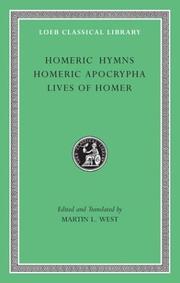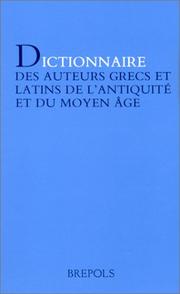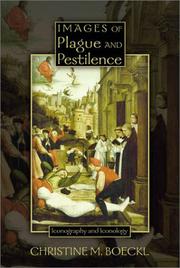| Listing 1 - 6 of 6 |
Sort by
|
Book
ISBN: 9781409452652 9781409452669 9781472400406 1409452654 9781315606828 9781317061854 9781317061861 Year: 2013 Publisher: Farnham Ashgate
Abstract | Keywords | Export | Availability | Bookmark
 Loading...
Loading...Choose an application
- Reference Manager
- EndNote
- RefWorks (Direct export to RefWorks)
Romeinse oudheid --- Renaissance --- anno 1500-1599 --- France --- French literature --- Collectors and collecting --- Littérature française --- Collectionneurs et collections --- History and criticism. --- History --- Roman influences. --- Histoire et critique --- Histoire --- Influence romaine --- Antiquities, Roman. --- Antiquités romaines --- Civilization --- Classical influences. --- Romance Literatures --- Languages & Literatures --- French Literature --- History and criticism --- Roman influences --- Littérature française --- Antiquités romaines --- Antiquities, Roman --- French literature - 16th century - History and criticism --- Collectors and collecting - France - History - 16th century --- French literature - Roman influences --- France - Antiquities, Roman --- collecting, France

ISBN: 0674996127 9780674996120 Year: 2004 Volume: 91 Publisher: Cambridge (Massachusetts) Harvard University Press
Abstract | Keywords | Export | Availability | Bookmark
 Loading...
Loading...Choose an application
- Reference Manager
- EndNote
- RefWorks (Direct export to RefWorks)
Bite and wit characterize two seminal and stellar authors in the history of satirical writing, Persius (34-62 CE) and Juvenal (writing about sixty years later). The latter especially had a lasting influence on English writers of the Renaissance and succeeding centuries.
Verse satire, Latin --- Languages & Literatures --- Greek & Latin Languages & Literatures --- Juvenal --- Persius --- Rome --- Persius Flaccus, Aulus --- Poetry --- Latin literature --- Satire --- Rome (Empire) --- Latin verse satire --- Comic literature --- Roman literature --- Persjusz Flakkus, Aulus --- Perse --- Flaccus, Aulus Persius --- Persius, Paulus Flaccus --- Persio --- Aulus Persius Flaccus Volateris --- Giovenale, D. Giunio --- Juvenalis, Decimus Junius --- Juvénal --- Rim --- Roman Empire --- Roman Republic --- Romi --- Latin poetry --- Literature --- Wit and humor --- Invective --- Classical literature --- Classical philology --- Latin philology --- Byzantine Empire --- Italy --- Romi (Empire) --- Iuvenalis, Decimus Iunius --- Poésie satirique latine --- Translations into English. --- Traductions anglaises --- Poetry. --- Poésie --- Juvénal, --- Perse, --- Rome - Poetry --- Iuvenalis, Decimus Junius --- Giovenale --- Iouvenalēs --- I︠U︡venal, D. I︠U︡nīĭ --- Yuvenalis --- Giovenale, Decimo Giunio --- klassieke literatuur --- Latijnse literatuur --- Juvénal

ISBN: 0674996062 9780674996069 Year: 2003 Volume: 496 Publisher: Cambridge (Massachusetts) Harvard University Press
Abstract | Keywords | Export | Availability | Bookmark
 Loading...
Loading...Choose an application
- Reference Manager
- EndNote
- RefWorks (Direct export to RefWorks)
The earliest poems extant under the title Homeric Hymns date from the seventh century BCE. Comic poems in the Homeric Apocrypha include the Battle of Frogs and Mice (probably not earlier than first century CE). Lives of Homer include a version of The Contest of Homer and Hesiod that dates from the second century BCE.
Homer --- Hymns, Greek (Classical) --- Greek poetry --- Poets, Greek --- Hymnes grecs anciens --- Poésie grecque --- Poètes grecs --- Translations into English --- Biography --- Traductions anglaises --- Biographies --- Homer. --- Authorship. --- Homeric hymns --- Translations into English. --- Authorship --- -Poets, Greek --- Greek poets --- Greek literature --- -Authorship --- Inni omerici --- Homērikoi hymnoi --- Hymni Homerici --- Languages & Literatures --- Greek & Latin Languages & Literatures --- Homeros --- Homère --- Homerus --- Poésie grecque --- Poètes grecs --- Hóiméar --- Hūmīrūs --- Gomer --- Omir --- Omer --- Omero --- Ho-ma --- Homa --- Homérosz --- האמער --- הומירוס --- הומר --- הומרוס --- هومر --- هوميروس --- 荷马 --- Ὅμηρος --- Гамэр --- Hamėr --- Омир --- Homero --- 호메로스 --- Homerosŭ --- Homērs --- Homeras --- Хомер --- ホメーロス --- ホメロス --- Гомер --- Homeri --- Hema --- Pseudo-Homer --- Pseudo Omero --- Greek hymns --- Authoring (Authorship) --- Writing (Authorship) --- Literature --- Hymns, Greek (Classical) - Translations into English --- Greek poetry - Translations into English --- Poets, Greek - Biography - Early works to 1800. --- Griekse literatuur --- klassieke literatuur

ISBN: 2503500161 9782503500164 Year: 1991 Volume: *8 Publisher: Turnhout Brepols
Abstract | Keywords | Export | Availability | Bookmark
 Loading...
Loading...Choose an application
- Reference Manager
- EndNote
- RefWorks (Direct export to RefWorks)
Classical Greek literature --- anno 500-1499 --- Slavic literature --- Latin literature: authors --- Classical literature --- Latin literature, Medieval and modern --- Littérature ancienne --- Littérature latine médiévale et moderne --- Dictionaries --- French --- Dictionnaires français --- 276 <092> --- 871 <092> --- 875 <092> --- 873.3 <03> --- #GROL:SEMI-87<03> --- 880 --- Patrologie. Patristiek--Biografieën --- Latijnse literatuur--Biografieën --- Griekse literatuur--Biografieën --- Middeleeuws Latijnse literatuur--Naslagwerken. Referentiewerken --- Literature Greek and Classical literatures --- 873.3 <03> Middeleeuws Latijnse literatuur--Naslagwerken. Referentiewerken --- 875 <092> Griekse literatuur--Biografieën --- 871 <092> Latijnse literatuur--Biografieën --- Littérature ancienne --- Littérature latine médiévale et moderne --- Dictionnaires français --- Authors [Greek ] --- Authors [Byzantine ] --- Authors [Latin ] --- Authors [Latin ] (Medieval and modern) --- Griekse literatuur --- klassieke literatuur --- Latijnse literatuur --- Auteurs latins --- Auteurs grecs --- Empire byzantin --- Empire latin --- Rome (italie) --- Moyen age --- Dictionnaires --- Biographies --- JANSENISME --- FRANCE --- HISTOIRE --- 17E-18E SIECLES --- VIE RELIGIEUSE --- 18E SIECLE
Book
ISBN: 9783110245479 9783110245486 3110245477 3110245485 1282885154 9786612885150 Year: 2010 Volume: 5 Publisher: Berlin De Gruyter
Abstract | Keywords | Export | Availability | Bookmark
 Loading...
Loading...Choose an application
- Reference Manager
- EndNote
- RefWorks (Direct export to RefWorks)
Despite popular opinions of the 'dark Middle Ages' and a 'gloomy early modern age,' many people laughed, smiled, giggled, chuckled, entertained and ridiculed each other. This volume demonstrates how important laughter had been at times and how diverse the situations proved to be in which people laughed, and this from late antiquity to the eighteenth century. The contributions examine a wide gamut of significant cases of laughter in literary texts, historical documents, and art works where laughter determined the relationship among people. In fact, laughter emerges as a kaleidoscopic phenomenon reflecting divine joy, bitter hatred and contempt, satirical perspectives and parodic intentions. In some examples protagonists laughed out of sheer happiness and delight, in others because they felt anxiety and insecurity. It is much more difficult to detect premodern sculptures of laughing figures, but they also existed. Laughter reflected a variety of concerns, interests, and intentions, and the collective approach in this volume to laughter in the past opens many new windows to the history of mentality, social and religious conditions, gender relationships, and power structures.
Theory of knowledge --- humor --- epistemology --- Affective and dynamic functions --- Art --- Literature --- anno 500-1499 --- anno 1500-1599 --- Laughter in literature. --- Humor in literature. --- Laughter --- Wit and humor, Medieval. --- Wit and humor --- Rire dans la littérature --- Humour dans la littérature --- Rire --- Humour médiéval --- Humour --- History. --- Philosophy. --- Religious aspects. --- History and criticism. --- Histoire --- Philosophie --- Aspect religieux --- Histoire et critique --- Laughter -- History. --- Laughter -- Philosophy. --- Laughter -- Religious aspects. --- Wit and humor -- History and criticism. --- Wit and humor -- History. --- Laughter in literature --- Humor in literature --- Wit and humor, Medieval --- Languages & Literatures --- Literature - General --- History --- Philosophy --- Religious aspects --- History and criticism --- Rire dans la littérature --- Humour dans la littérature --- Humour médiéval --- Laughter (in religion, folk-lore, etc.) --- Laughing --- Bons mots --- Facetiae --- Humor --- Jests --- Jokes --- Ludicrous, The --- Ridiculous, The --- Wit and humor, Primitive --- Emotions --- Nonverbal communication --- Joking --- Laughter / in Literature. --- lachen

ISBN: 0943549728 094354985X 9780943549729 Year: 2000 Volume: 53 Publisher: Kirksville, Mo. Truman State University Press
Abstract | Keywords | Export | Availability | Bookmark
 Loading...
Loading...Choose an application
- Reference Manager
- EndNote
- RefWorks (Direct export to RefWorks)
History of Europe --- Thematology --- Iconography --- Pest in de kunst --- Pest in de literatuur --- Peste dans l'art --- Peste dans la littérature --- Plague in art --- Plague in literature --- Plague in art. --- Plague in literature. --- Yersinia Infections --- Art --- Literature --- Humanities --- Enterobacteriaceae Infections --- Gram-Negative Bacterial Infections --- Medicine in Literature --- Plague --- Medicine in Art --- Bacterial Infections --- Bacterial Infections and Mycoses --- Diseases --- Visual Arts --- Art, Architecture & Applied Arts --- Visual Arts - General --- Bacterial Infection --- Infection, Bacterial --- Infections, Bacterial --- Science in Art --- Art, Medicine in --- Art, Science in --- Arts, Medicine in --- Arts, Science in --- Medicine in Arts --- Science in Arts --- in Art, Medicine --- in Art, Science --- in Arts, Medicine --- in Arts, Science --- Black Death --- Black Plague --- Septicemic Plague --- Bubonic Plague --- Meningeal Plague --- Pneumonic Plague --- Pulmonic Plague --- Black Deaths --- Black Plagues --- Death, Black --- Deaths, Black --- Meningeal Plagues --- Plague, Black --- Plague, Bubonic --- Plague, Meningeal --- Plague, Pneumonic --- Plague, Pulmonic --- Plague, Septicemic --- Plagues, Black --- Plagues, Meningeal --- Plagues, Pneumonic --- Plagues, Pulmonic --- Plagues, Septicemic --- Pneumonic Plagues --- Pulmonic Plagues --- Septicemic Plagues --- Science in Literature --- Literature, Medicine in --- Literature, Science in --- in Literature, Medicine --- in Literature, Science --- Infections, Gram-Negative Bacterial --- Bacterial Infections, Gram-Negative --- Bacterial Infection, Gram-Negative --- Bacterial Infections, Gram Negative --- Gram Negative Bacterial Infections --- Gram-Negative Bacterial Infection --- Infection, Gram-Negative Bacterial --- Infections, Gram Negative Bacterial --- Infections, Enterobacteriaceae --- Infections, Enterobacterial --- Enterobacterial Infections --- Enterobacteriaceae Infection --- Enterobacterial Infection --- Infection, Enterobacteriaceae --- Infection, Enterobacterial --- Literatures --- Arts --- Infections, Yersinia --- Infection, Yersinia --- Yersinia Infection
| Listing 1 - 6 of 6 |
Sort by
|

 Search
Search Feedback
Feedback About UniCat
About UniCat  Help
Help News
News